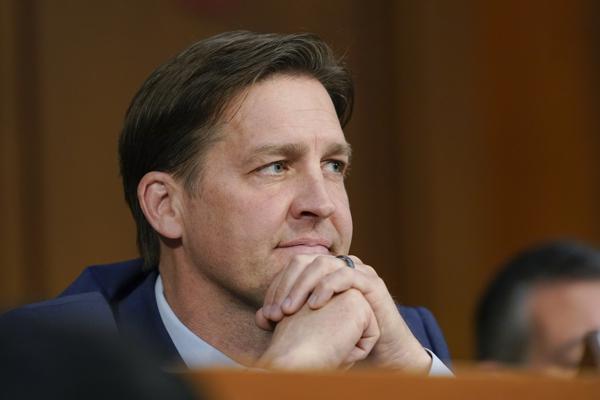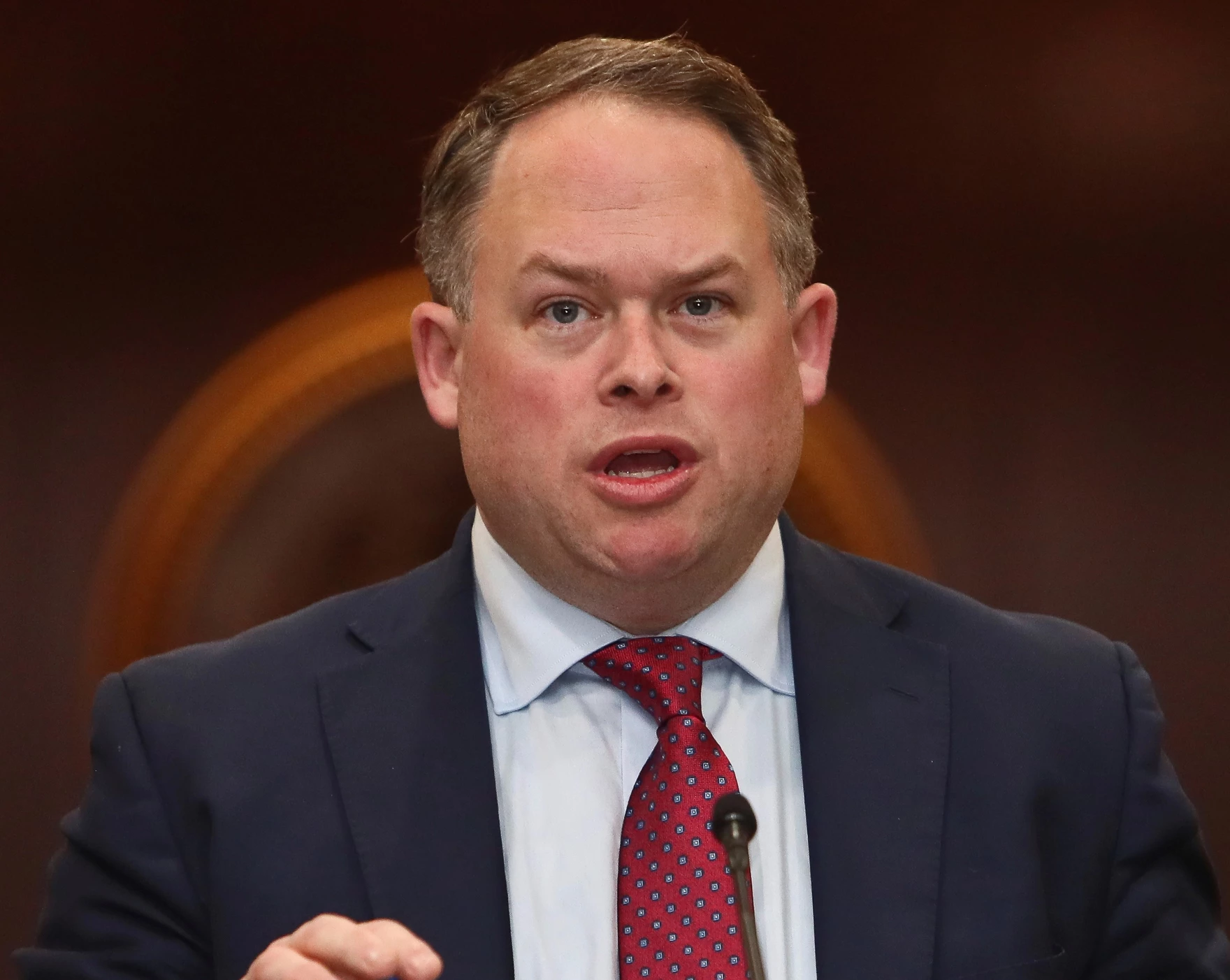In the wake of the University of Florida President Ben Sasse’s financial scandal, UF needs stronger protocols in place for awarding consultant contracts, hiring employees and spending money on food and drinks for school events, according to some of the findings in a new Florida Auditor General’s preliminary audit report.
The Florida Auditor General’s office detailed how Sasse’s office spent millions of dollars on consultants, employees who worked remotely from out of state and lavish parties.
The final audit report is expected to be completed in the next several weeks, auditor manager Jaime Hoelscher said.
UF spokesman Steve Orlando said the school had no comment Tuesday.
Sasse resigned last year from his post because of his wife’s health.
Weeks later, he was under fire and facing accusations of wasting school funds based on reporting from the Independent Florida Alligator college newspaper, which broke the story.
Sasse’s office spent $14.8 million in the 2023-24 school year — a 72% spike from the previous year, the preliminary audit report said.
Sasse’s office spent $6.4 million on a consultant firm, but the audit report said, “University records did not demonstrate the benefit the University received for the consultant services.”
The president’s office spent $563,825 on catering for eight events. The preliminary audit said the prices were not competitive.
“As such, the reasonableness of the costs was not always apparent,” the report said describing a two-hour holiday buffet for 594 people that cost $169,755; a one-hour-holiday lighting party with hot chocolate, cider, peppermint chocolates, and cookies that cost $62,650 for 2,000 guests; and Sasse’s tailgating party for 478 people with a $46,449 tag.
Meanwhile, Sasse’ office hired 24 people from Feb. 6, 2023 to June 30, 2024.
“The contracted annual salaries ranged from $75,000 to $687,000 and averaged $249,931. Our examination of University records and discussions with University personnel disclosed that University employment practices could be improved,” the preliminary audit report said, noting 14 of those positions didn’t have job descriptions.
Many of the positions were paid above market value and the university did not conduct a competitive recruitment hiring process either.
“According to University personnel, the President and 1 other member of University management exercised discretion in establishing the salaries for the 19 individuals,” the preliminary audit report said. “However, although we requested, University records were not provided to identify the basis for those salaries.”
The audit raised other concerns about compensation.
One employee was given a $115,000 relocation bonus and then quit eight months later, while a second employee was paid a $129,000 bonus and then resigned within18 months.
“Given the brief employment periods of the two employees, we asked University personnel whether repayment of those amounts was requested and were informed that University contracts for these employees were not structured to require repayment,” the preliminary audit report said.
The president’s office also paid $100,000 for an employee’s house purchase.
“To qualify for loan forgiveness, the employee must remain employed full-time at the University during the 5-year period. Considering this employee also received an $80,000 recruitment bonus and $25,000 for relocation assistance paid from another University Department, the reasonableness of the $100,000 payment was unclear,” the preliminary audit report said.
And not everyone working for Sasse actually lived in Gainesville, or even Florida.
Thirteen UF employees worked remotely while living in California, Illinois, Maryland, Massachusetts, Nebraska, Tennessee, Texas, Virginia, and Washington, D.C., the report said.
And the preliminary audit report took aim at Sasse’s own pay.
After he resigned, he kept his $1 million annual base salary as president emeritus through February 2028.
“In response to our inquiry in December 2024, University personnel indicated that he did not teach a class in the Fall 2024 but was preparing materials for a course that he and another employee would co-teach in Spring 2025. University personnel further informed us that he was also working closely with the Chair in his role as an external advisor, which included responsibilities such as fundraising, speeches, and recruitment,” the report said. “Absent records to support the basis for the Advisor salary at the same rate of his prior compensation as a University President, the public purpose of such a salary is not readily apparent.”
Post Views: 0

 Entertainment8 years ago
Entertainment8 years ago
 Entertainment8 years ago
Entertainment8 years ago
 Politics8 years ago
Politics8 years ago
 Tech8 years ago
Tech8 years ago
 Tech8 years ago
Tech8 years ago
 Tech8 years ago
Tech8 years ago
 Politics8 years ago
Politics8 years ago
 Tech8 years ago
Tech8 years ago








